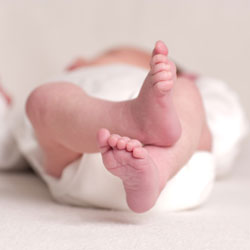 I am often asked about poo habits. It’s NOT the most glamorous part of my work I’ll admit but hey, discussing bowel habits (what’s healthy and what’s not) IS important for all members of the family…Does your four-year-old child or forty-year-old partner know how often they should be pooing each day and what constitutes a ‘healthy’ poo? If not, you can also have a look at my second post today, where I outline healthy ‘poo habits’ for adults and children..
I am often asked about poo habits. It’s NOT the most glamorous part of my work I’ll admit but hey, discussing bowel habits (what’s healthy and what’s not) IS important for all members of the family…Does your four-year-old child or forty-year-old partner know how often they should be pooing each day and what constitutes a ‘healthy’ poo? If not, you can also have a look at my second post today, where I outline healthy ‘poo habits’ for adults and children..
With this post I’ll discuss newborn baby’s poo — i.e. young babies who are either being breastfed or formula fed prior to starting solid foods. Once a baby starts eating solids then their poo changes dramatically (shifting to the more unpleasant end of the spectrum!), so we’ll discuss that separately.
Before I outline the differences between the poo habits of breastfed and formula fed babies, let me take a moment to emphasize the importance of breastfeeding newborn babies — even if it is for only a short period of time. Let me preface that I know breastfeeding isn’t always possible for some mother-baby duos, but if you have just had your baby and are debating whether you would like to breastfeed or not, then here are a few points to consider…
Two Points to Consider If You Are Weighing Up Whether To Breastfeed Or Not
 The Canadian Medical Association Journal Feb. 2013 states that breastfeeding promotes “healthy” gut microbiota by providing selective metabolic substrates for beneficial bacteria.” 1
The Canadian Medical Association Journal Feb. 2013 states that breastfeeding promotes “healthy” gut microbiota by providing selective metabolic substrates for beneficial bacteria.” 1
What this means is that breast milk passes particular nutrients that allow very important “friendly bacteria” to be established in a newborn baby’s gut.
If we can help to establish a strong team of “good bacteria” then we create an important balance of “friendly and unfriendly” bacteria, which then helps to strengthen our baby’s short and long-term health. Breast milk also passes antibodies through to our newborn babies to help establish immune responses. Life is a heck of a lot easier if our children are healthy and there is ample research linking gut weakness with an array of health conditions including inflammatory bowel disease, diabetes, obesity, cancer, allergies and asthma.2
 I would also urge you to consider breastfeeding if you’ve had a caesarean birth. The same journal article discusses how, “Caesarean delivery perturbs normal colonization of the infant gut by preventing exposure to maternal microbes.”
I would also urge you to consider breastfeeding if you’ve had a caesarean birth. The same journal article discusses how, “Caesarean delivery perturbs normal colonization of the infant gut by preventing exposure to maternal microbes.”
In essence this means that caesarean births may prevent a “switching on” of the immune system (the switching from Type 2 to Type 1 immune response) that happens with vaginal births when babies travel through the birth canal. If your baby was born via caesarean (planned or unplanned) then you can help foster their immune strength by breastfeeding — even if it is only for the first 2-3 months.
Please don’t feel disheartened If you are unable to breastfeed or if you have had a caesarean birth. My next post — “Is there a reason so many children are unwell?” — offers an explanation on why so many children have health challenges and MOST IMPORTANTLY WHAT WE CAN DO TO RESTRENGTHEN our children. (Remember to subscribe if you haven’t already so you can get this next post sent straight to your email inbox).
I like to think of life as an adventure and that there are always-proactive steps we can take to nurture the health of our children.
POO TALK!
For Breastfed Babies
The initial form of breast milk created post birth is colostrum. It is generally quite a yellow milk due to its high concentration of beta-carotene and has a laxative effect to rid your baby’s bowel of meconium. Meconium is a sticky, greeny-black substance that builds up in your baby’s intestines during your pregnancy, and is made up of cells from the bowel wall, bile, mucus, secretions and amniotic fluid. It will be tricky to wipe this meconium off your baby’s bottom but it does only last for a few days.
From here, breast-fed babies typically have light yellow to mustard coloured runny poos which inevitably will have little curdy lumps as well. There may also be some green specks in their poo. Newborn breast-fed babies often poo 3-4 times a day or after every feed.
Some parents report that their baby only poos every 3 or 4 days (or longer). If this is the case, as a chiropractor I would ask breastfeeding mothers to consider how hydrated they are. It is important that breastfeeding mothers drink plenty of water as your hydration levels affect your body’s ability to create breast milk and in turn will also affect your baby’s digestion. Breast milk has a high water content and your baby relies on your breast milk as a source of balanced fluids, so you will need to drink lots of water.
Keep a jug or a bottle of water near you while you breastfeed to remind yourself to drink. Aim to drink at least two and a half litres of water a day. Your hydration levels will also be affected by coffee, tea, other diuretics and carbonated drinks.
If a breastfeed baby is only pooing once every 3-4 days I would also encourage parents to offer their baby additional water from a bottle throughout the day (as discussed above) and encourage them to find a chiropractor skilled with children to assess their newborn. Frequently3 babies experience trauma from their birth that may impact how well their brain and nervous system is able to effectively co-ordinate bodily functions including digestion.
Be sure that your newborn drains one breast fully during a feed or before swapping them to the other breast. Otherwise your baby may become irritable and their digestion may be affected.
Q: What if the poo turns green and frothy?
If your baby’s stools turn green and frothy this may be because:
- Your newborn is not draining your breast fully — he is only drawing the fore-milk which is full of lactose (milk sugar). Fore-milk may satisfy his hunger, but it is important that he drains your full breast and receives the hind-milk which is full of protein and fat — important for growth. This hind-milk also makes him drowsy. If babies only take the foremilk off each breast they will receive too much sugar — often becoming more restless and harder to settle. Their poo often also becomes green and frothy.
- Your baby may be having a growth spurt, causing you to have had a big let-down of breast milk, which has meant your baby has suddenly had an excess of milk to wrangle. Your baby may therefore be getting a lot of foremilk as he learns to contend with draining a fuller breast, but don’t be alarmed as this should settle down in a day or so. As your baby grows they will conquer an increase in milk supply like a pro. A true imbalance of foremilk and hindmilk is rare.
- A green, mucousy stool can be the result of a virus. A green poo may be the only sign we see of a virus in a breastfed baby. If you aren’t already giving your baby some probiotics then grab some from a health food store and start taking some yourself, as well as giving some orally to your newborn baby. This may help them to fight off the virus. A virus will normally run its course over a few days and begin to improve.
- Another reason for green frothy poos may be teething. You’ll see signs of teething as profuse saliva, lots of drooling, and your baby will chew on anything they can put up to their mouth. Sometimes the excess saliva can irritate the intestines — causing runny, acidic stools. This can also cause a rash in the diaper area. Probiotics are again very beneficial to keep a good balance of friendly and unfriendly bacteria.
- Another reason may be a food intolerance via the breast milk. This is a great opportunity to consider if you may have any food allergies or intolerance to certain foods. It is best to avoid or minimize these while breastfeeding. 4
. . . . .
For more information regarding breastfeeding, including…
- How do I know if I have enough breast milk?
- Why does my newborn seem drowsy and not interested in feeding?
- Will my breastfed baby be affected by what I eat and drink?
- Items to avoid while breastfeeding
…please see Chapter 16 (Breastfeeding) of Well Adjusted Babies – 2nd Edition.
View Breastfeeding (eBook)…
Australia/NZ Store
USA/Canada Store
UK/Europe Store
View Well Adjusted Babies – Second Edition
Australia/NZ Store
USA/Canada Store
UK/Europe Store
. . . . .
For Formula-Fed Babies
Typically bottle-fed baby’s stools tend to look like clay. They will be vary between white, pale yellow or yellowish-brown in colour and remnants of the formula will leave it looking bulkier and much more formed than a breastfed baby’s. Formula is not as easily digested as breast milk and the smell will be more pungent — smelling more like an adult’s stools.
To stay feeling comfortable, bottle-fed babies should ideally pass stools once a day. Their waste is bulkier and often formula fed babies may not have a bowel motion for 5-10 days — in this scenario please ensure that your baby drinks water from a bottle regularly throughout the day. The longer it stays in the bowel the harder it will become and the more difficult to pass, which could lead to other signs of constipation including straining, irritability, small tears around the anus, blood in the urine. In this scenario stools will be hard, small pellets rather then a long soft poo. Talk to your chiropractor or health practitioner if you feel your baby has a problem.
What about Diarrhoea?
We discussed why poo may be green in the breastfeeding section above, and points 3-5 are also applicable for formula- fed babies.
Diarrhoea is a very runny stool with an increase in volume and frequency which tends to spurt forcefully out of your baby’s bottom. A breastfed baby is less likely to suffer from diarrhoea, as breast milk helps to inhibit the micro-organisms which cause it. Bottle-fed babies are more prone to infection, which is why it is vital to:
- sterilise equipment and always wash your hands thoroughly, and
- have your formula fed baby on a probiotic that you add after mixing up your bottle of formula.
The cause of diarrhoea may be:
- an infection, such as gastroenteritis,
- a sensitivity to the formula or a food,
- teething (please refer to point 4 in the breastfeeding section “What if the poo turns green and frothy?”), or
- a reaction to any medication your baby is on.
Diarrhoea should clear up without treatment within 24 hours, but if not, get it checked out.
For more information regarding…
- Reactions and allergies
- Selecting a formula
- Formula feeding tips
…and more, please see Formulas – The Next Best Options eBook or Chapter 17 of Well Adjusted Babies – Second Edition.
View Formulas (eBook)…
Australia/NZ Store
USA/Canada Store
UK/Europe Store
View Well Adjusted Babies – Second Edition
Australia/NZ Store
USA/Canada Store
UK/Europe Store
For further information please also read my post on the most common reasons many children become unwell, and what we can do to strengthen our kids. To read, please click here.
Jennifer Barham-Floreani
(Bach. Chiropractic, Bach. App Clinical Science
Registered internationally, no longer practicing as a chiropractor in Australia.)
. . . . .
Azad MB, Konya T, Maughan H, Guttman DS, Field CJ, Chari RS, Sears MR, Becker AB, Scott JA, Kozyrskyj AL, on behalf of the CHILD Study Investigators. Gut microbiota of healthy Canadian infants: profiles by mode of delivery and infant diet at 4 monthsCMAJ 2013. DOI:10.1503/cmaj.121189
Guttman G. Blocked Atlantal Nerve Syndrome in Babies and Infants. Manuelle Medizin 1987; 25. Also reviewed in Chiropractic Report 1989;3(2) (as cited in Chestnut, 2003)
Frymann VM. Springall P. Effect of Osteopathic Medical Management on NeJAOA. 1992;92:729.
Rosner AL. Infant and child chiropractic care: an assessment of research. Foundation for Chiropractic Education and Research; 2003. https://www.chiro.org/pediatrics/FULL/Infant_and_Child_Chiropractic_Care.shtml
N. I. Kjellman, ‘Prediction and prevention of atopic allergy’; R. S. Zeiger, et al., ‘Genetic and environmental factors affecting the developing of atopy through age 4 in children with atopic parents: a prospective randomised study of food allergen avoidance’.


 I am often asked about poo habits. It’s NOT the most glamorous part of my work I’ll admit but hey, discussing bowel habits (what’s healthy and what’s not) IS important for all members of the family…Does your four-year-old child or forty-year-old partner know how often they should be pooing each day and what constitutes a ‘healthy’ poo? If not, you can also have a look at my second post today,
I am often asked about poo habits. It’s NOT the most glamorous part of my work I’ll admit but hey, discussing bowel habits (what’s healthy and what’s not) IS important for all members of the family…Does your four-year-old child or forty-year-old partner know how often they should be pooing each day and what constitutes a ‘healthy’ poo? If not, you can also have a look at my second post today, 

